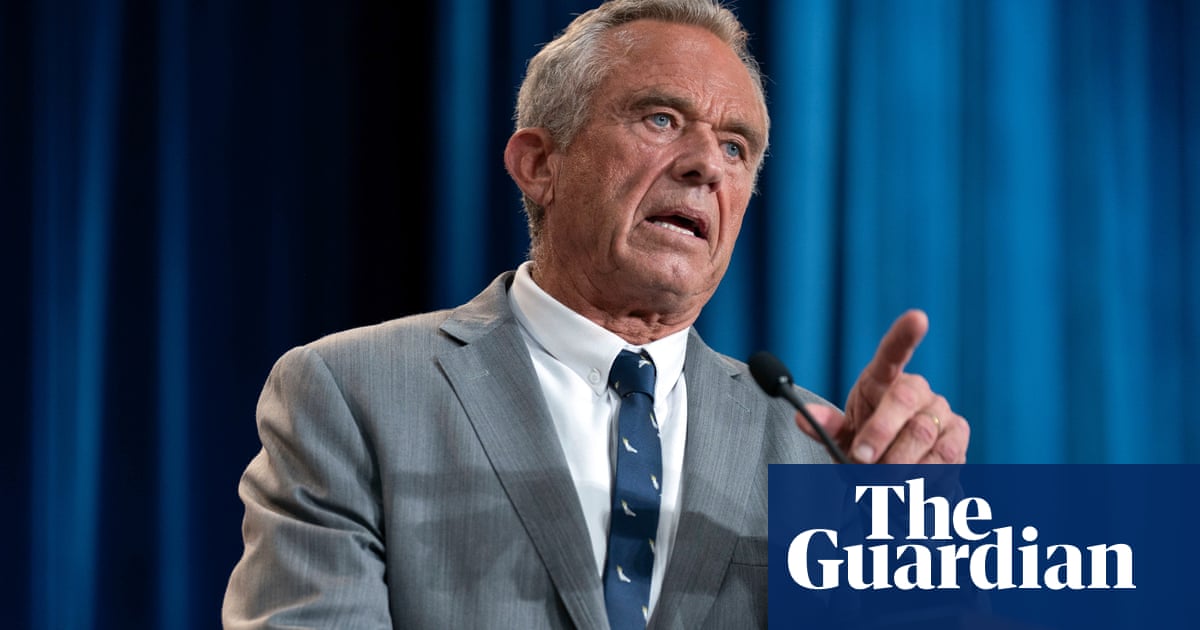Shockwaves Rippling Through the Autism Community
When Robert F. Kennedy Jr. announced a major initiative aimed at monitoring the health of individuals with autism, responses from the autistic community and their allies were immediate and sharp. This initiative was met with profound shock and anger, as many perceived it as a continuation of harmful rhetoric around autism spectrum disorder (ASD).
Concerns Over Misguided Leadership
Kennedy’s recent actions as the U.S. Secretary of Health and Human Services have raised alarms. He has dismissed key officials, terminated thousands of employees, and floated proposals that would dismantle essential support services for disabled individuals. His assertions about an autism “epidemic” that threatens the well-being of children have drawn ire, with advocates pointing out that these views are disjointed from current scientific understanding.
At a press conference, Kennedy emphasized the need to end what he described as detrimental practices towards children, saying, “We have to recognize we are doing this to our children.” Such statements have only exacerbated worries about the future of health policy for those with autism, with many feeling that his administration lacks a compassionate and evidence-based approach.
Voices from the Community
A significant number of International Guardian readers have expressed fears that Kennedy’s damaging rhetoric may influence global perceptions of autism. One advocate, Seth Taylor from Georgia, discussed the urgency of the matter: “RFK Jr. needs to recant his remarks, kill the [autism] registry, and actually sit down with autistic folks like myself to better understand us.” Nearly 200 people reached out to the Guardian, highlighting their concerns over the precarious landscape for autism research and support services that they believe are being dismantled.
A Personal Perspective on Autism
The personal stories shared by community members underline the nuanced ways autism shapes identity. Taylor, diagnosed at two, details how early intervention and a supportive family transformed his view of autism from a perceived defect to a unique part of his identity. He emphasizes that his neurodiversity is a strength, showcasing how individuals on the spectrum can contribute significantly to society, contradicting Kennedy’s assertions.
Kennedy’s claims regarding “environmental toxins” as key contributors to autism have drawn criticism for perpetuating stigmas. This narrative, according to Taylor, diverts attention from critical needs—like support and accommodation—towards a misguided search for a cure.
Dismantling Dangerous Rhetoric
Leanne Maskell, an autism coach based in London, articulated the dangers of Kennedy’s remarks. “Autism is a neurodevelopmental condition impacting the brain’s structure,” she explains. “It’s like having a different operating system, not something that needs fixing.” This analogy emphasizes the experience of being autistic—not a problem to be solved, but a variation of human experience to be understood.
Concerns over the proposed autism registry and its implications have also been echoed by Jeremy, a trucker from Illinois. Fears that such data could lead to harmful policies, including the displacement of autistic individuals, mirror historical abuses in public health. “To act like my entire immediate family is part of an epidemic is infuriating,” he stated, emphasizing the depth of his frustration.
The Role of Diagnosis in Support
For many families, obtaining a diagnosis is a necessary step for accessing support services. Roxie Riemann from Alabama shared her experiences with her daughter Ellowyn, who requires various therapies due to her autism diagnosis. “The kids aren’t broken,” Riemann says, framing the issue within a broader understanding of contribution beyond conventional metrics like tax revenue.
As Kennedy asserts that autism rates have surged, many within the community reminisce about being diagnosed later in life due to changing societal attitudes. Individuals like Elizabeth, a retired teacher, and Brian, a former educator, reflect on their journeys to diagnosis, highlighting how increased awareness and reduced stigma can lead to validation rather than fear.
The Importance of Support Over Surveillance
Parents and advocates now find themselves questioning whether to pursue an autism diagnosis amidst fears of increased scrutiny. Jeff, a cybersecurity consultant, reflected this sentiment, sharing his decision to cancel an autism evaluation due to concerns about being registered in a database that could have negative implications.
Moreover, community members like Kat emphasize the need for constructive support rather than categorization. Her son Ian, who communicates using a device, illustrates the reality that the focus should be not on curing autism but enhancing quality of life through better resources and understanding.
Navigating a Complex Landscape
As conversations around autism evolve, the push for policies that recognize individuality and encourage support is paramount. Advocates urge the need for trained professionals and thoughtful options for living accommodations and employment for autistic individuals. While Kennedy’s commentary raises fears of an escalating crisis narrative, many are determined to shift the focus to the society’s responsibility to provide understanding and acceptance for all.
The Fight for Authentic Representation
Continuing concerns about how public discourse shapes perception are significant. The rhetoric surrounding autism ties directly into broader issues of understanding and acceptance within society. As the deafening silence from policymakers continues, advocates are rallying for a shift away from harmful narratives and towards inclusive, supportive frameworks that celebrate neurodiversity rather than stigmatizing it.


